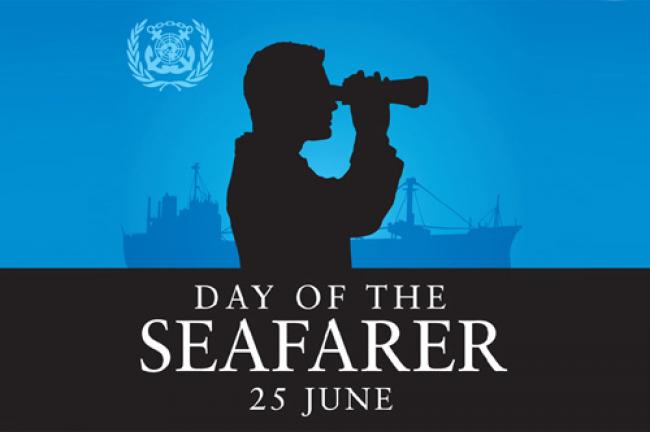26 Jun 2014, 04:02 pm Print

On Wednesday marks the fourth Seafarer’s Day, which aims to promote full appreciation for the work of seafarers and their role in modern societies. The event underlines the importance of this type of job and stresses the challenges that seafarers face on a daily basis.
Ports all around the world are busy, never-sleeping hubs where ships are ready to sail towards new destinations, with cargos containing a great amount of people’s daily goods.
Since the epoch of ancient Greeks and Romans, traditional commerce has taken place via the sea. The ships of those Empires transported goods simply from one city to another. Later in history, commerce spread around the entire world as ships began to sail from one continent to the other.
On Wednesday, the practice of maritime commerce is still a major force for transporting goods throughout the world. Indeed, day in and day out, year in and year out, all manner of resources such as iron, minerals, and coal, as well as food, clothes, furniture, vehicles reach their destinations via trips on the world’s waterways.
“Without shipping, the bulk transport of vital raw materials, affordable food and manufactured goods would simply not be possible” said UN Secretary-General Ban Ki-moon in his message on the Day, stressing the role of seafarers in ensuring that the benefits of globalization can be more evenly distributed.
Working on ships transporting cargo is often hard and challenging. Seafarers are likely to spend many hours with tough living conditions and with limited opportunities for social interaction or relaxation, said Ban. They often have to deal with difficult weather conditions and with the constant threat of piracy and shipwrecking.
Moreover, those who spend most of their time working on boats are also likely to experience constant separation from the loved ones for months.
“Over many years, the United Nations, through the International Maritime Organization (IMO) and other agencies, has strived to make seafaring a safer occupation and shipping a greener and cleaner industry. Seafarers themselves seek to implement and maintain the highest possible safety and environmental standards,” stressed the UN chief.
The maritime transport industry is central to the livelihoods of billions of people; and the industry, in turn, relies on seafarers. “Without them, international trade would grind to a halt. On the Day of the Seafarer, I ask people everywhere to recognize the seafarers who, with quiet dedication, keep the wheels of the world in motion,” said the Secretary-General.
On the 2013 Day, the annual campaign, led by the IMO was particularly successful, urging people to express appreciation for seafarers and their essential contributions to all, reaching some 300,000 Facebook users and more than 10 million people on Twitter.
For this year’s campaign the hashtag is #thankyouseafarer and the IMO is urging everyone to complete the sentence "Seafarers brought me...." and post it on social media.
“We are once again asking people everywhere to show their appreciation for the seafarers that quietly, mostly unnoticed, keep the wheels of the world in motion” expressed IMO Secretary-General Koji Sekimizu in his message on the Day.
Online platforms could be successful paths to raise awareness about the lives of seafarers and the issues affecting their jobs. They could also spotlight the huge amounts of goods that have been delivered worldwide thanks to their hard work.
“By doing so, you will be adding your voice to the millions of others who, on this one day, take the time to stop and thank those who work so hard, in the face of great hardship, to make our lives better,” concluded Sekimizu.
Photo: International Maritime Organization
- Coding at risk? Anthropic CEO Dario Amodei says human-centric roles may last longer
- Amazon’s mega office in Bengaluru is here. See all details
- Why is Nissan recalling 640000 vehicles? Check all details
- Microsoft appoints Asha Sharma as Gaming CEO. Who is she?
- Is your screen job about to vanish? Top AI expert warns that the shift has already begun





-1763561110.jpg)
